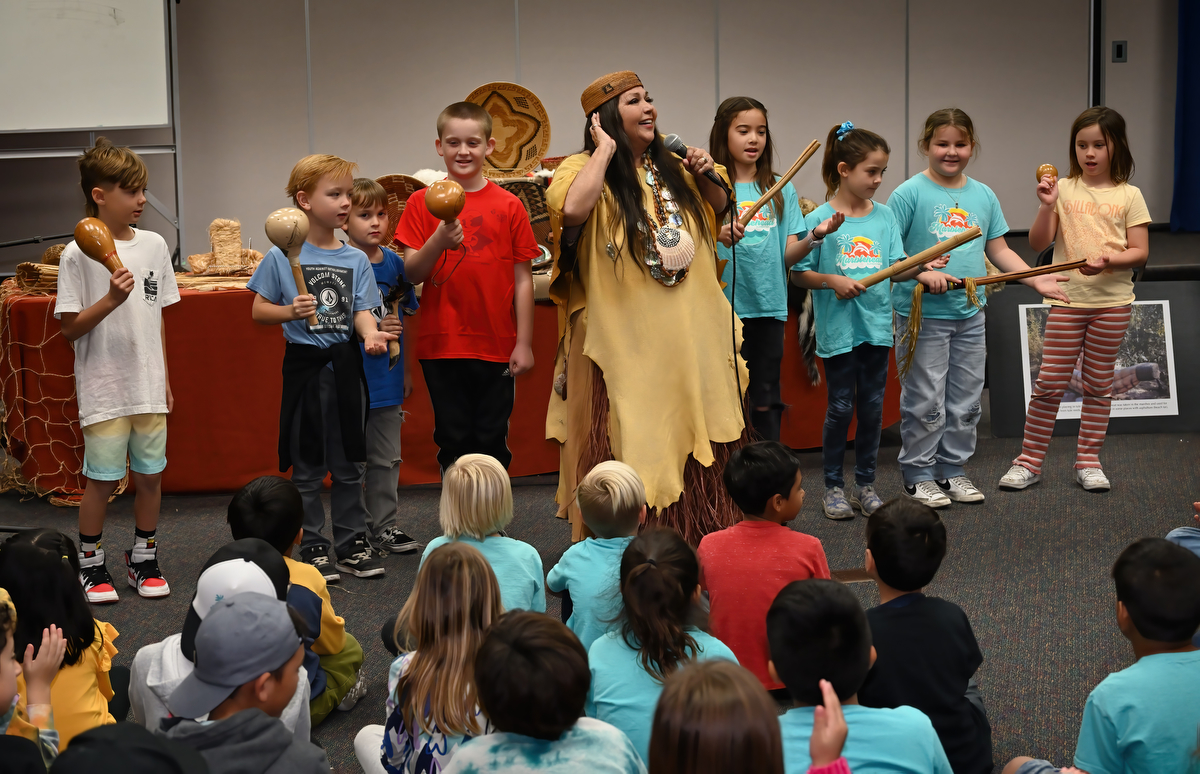By Greg Mellen
About 35 years ago, as she heard about her children being harassed, bullied and teased because of their heritage, Jacque Tahuka Nunez decided to do something about it.
Nunez and her children are members of the Juaneño Band of Mission Indians Acjachemen Nation. The children didn’t hide their identity, proudly wearing their hair in the traditional long braids of their people.
“When the kids would tease them, they’d try to cut their braids off,” Nunez recalls. “They would go ‘woo-woo’ in their faces.”
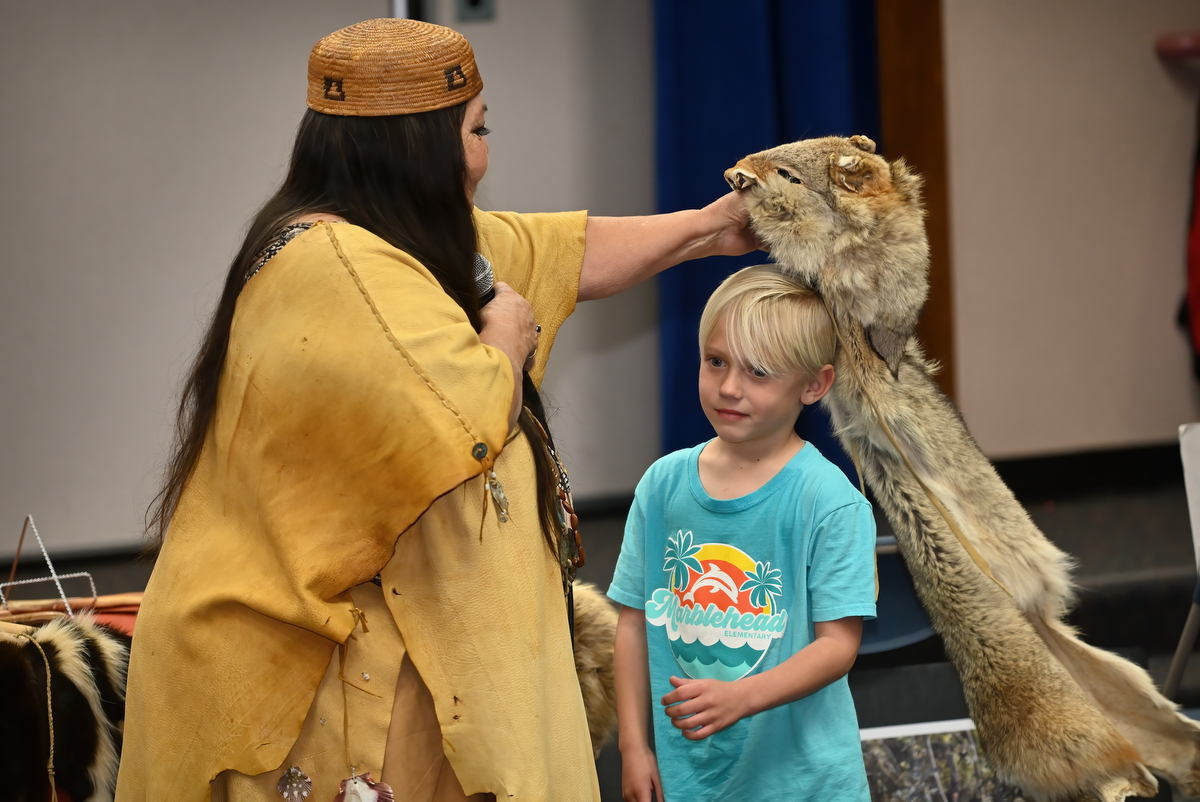
Photo by Steven Georges/CUSD Insider
Nunez said she faced a couple of choices.
“I could stand in anger,” she said, or she could “create a community of respect.”
Jackson Tahuka, Nunez’s youngest son, remembers the taunts, and his mother’s influence.
“That’s what made me stronger,” Jackson said.
Nunez began speaking to children at San Juan Elementary School. That expanded to more schools and soon she was working with the Segerstrom Center as its only California Native American storyteller. In “defending my children’s right to be who they are,” Nunez, 70, launched a new career as a teacher, storyteller, speaker, and artist.
Nunez and Jackson, an award-winning native dancer, recently brought their show, “Journey to the Past,” to Marblehead Elementary School for the first time since the pandemic. The performance was provided to the students by the Marblehead PTA. Nunez was decked out in a traditional outfit of a grass skirt, animal skin top, and a necklace of seashells.
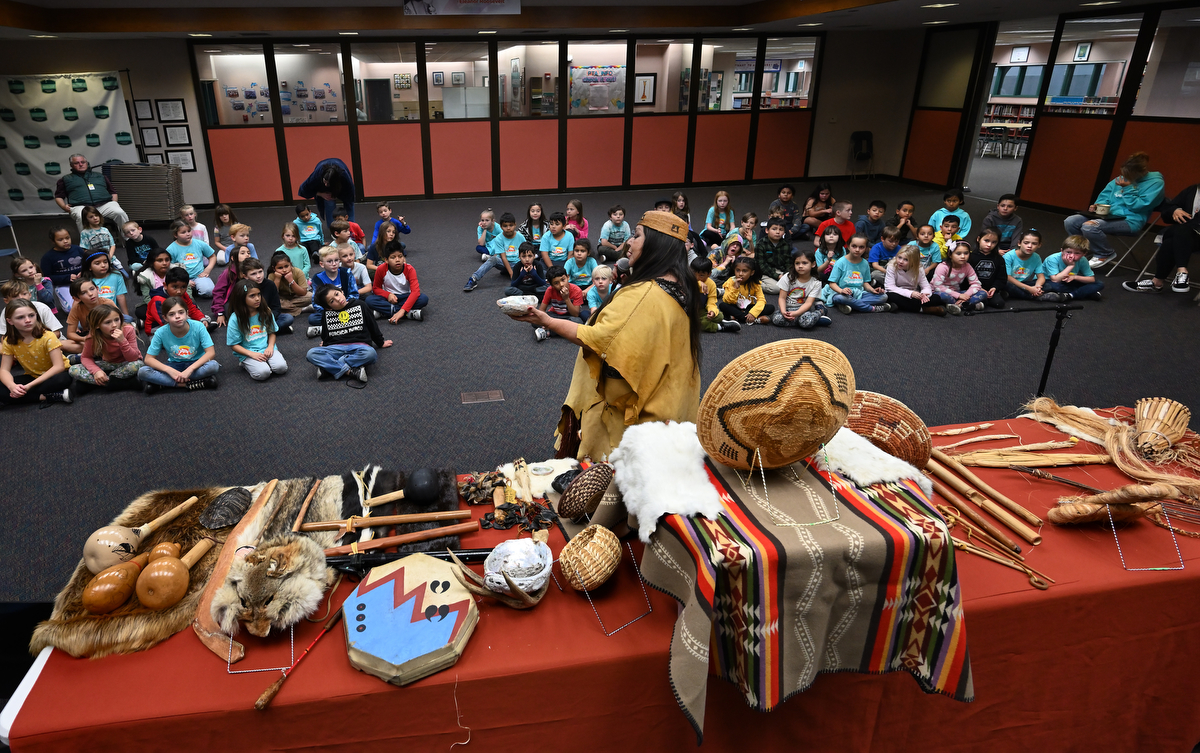
Photo by Steven Georges/CUSD Insider
Behind Nunez was an exhibit of artifacts and articles from her culture. There were baskets woven from native grasses, animal pelts and horns, a fishing net, abalone shells, elderberry flutes, clapper sticks, and rattles made from gourds and deer feet.
Engaging performance
Nunez enthralled the children with demonstrations and stories from her tribe, all of which bolstered messages of inclusion, diversity, and forgiveness.
“My main goal is to share with students what it was like before there was anything here but Native Americans,” Nunez says. “I want to show them a day in the life of Acjachemen boys and girls.”
Nunez gave two performances at Marblehead: one for first through third graders, and the other for fourth through sixth graders.
After instructing the children on the importance of “coyote quiet,” she launched into her performance, walking children back 300 years to a time before schools and houses and freeways.
“When my ancestors woke up in those mornings, they didn’t take anything for granted,” Nunez said.
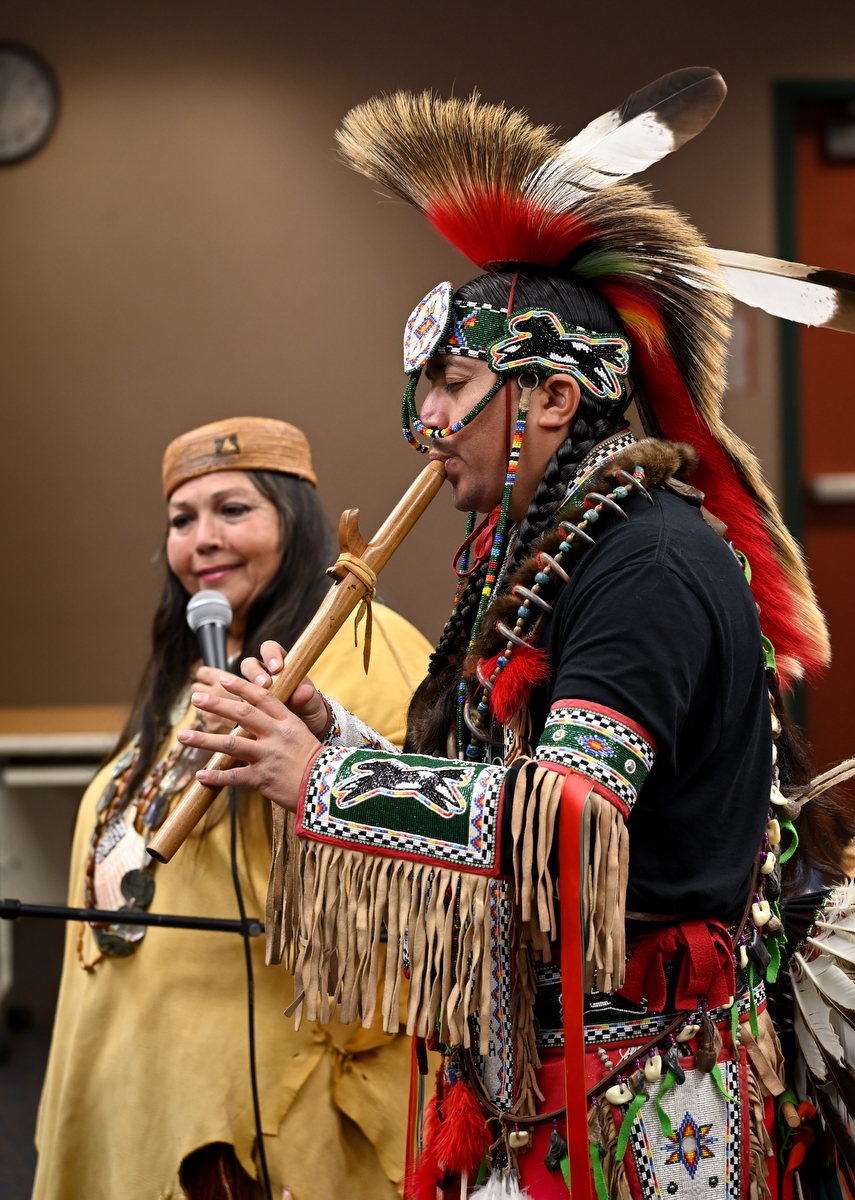
Photo by Steven Georges/CUSD Insider
As Nunez told the children the boys were hunters, a couple of first-graders silently pumped their fists and pantomimed shooting with bows and arrows.
Nunez demonstrated how flour was made from acorns and songs that were sung while chores were performed. Throughout, she brought selected children up front to help her with demonstrations and playing music with rattles and clapper sticks.
She launched into a traditional folktale about a sweet girl born with spots, or freckles, on her face, like the stars in the heavens. The girl had a magical life until a jealous boy mocked her freckles. The girl’s grandmother helped the girl realize that she should not be ashamed of the spots and that they made her special.
The girl then sought out the boy and helped him learn that all people are given gifts. After the boy apologized and was forgiven, he was visited by dragonflies that signaled that he now had a pure heart.
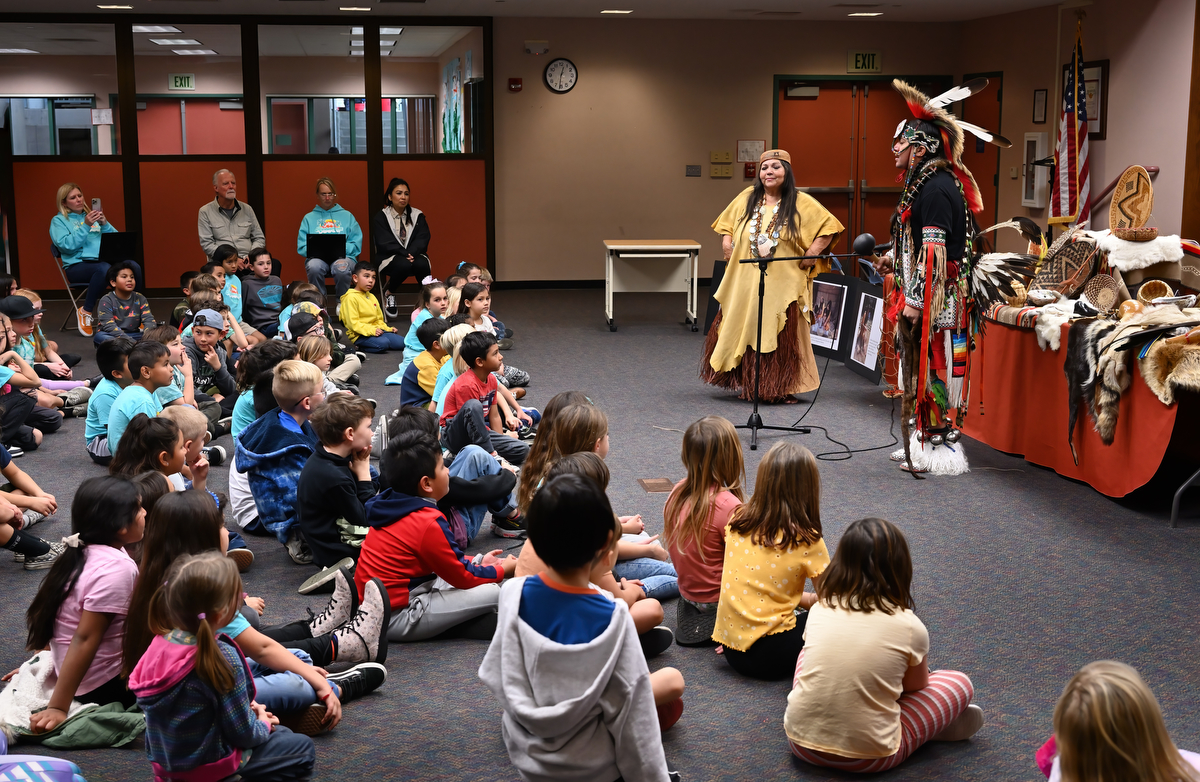
Photo by Steven Georges/CUSD Insider
If the story closely echoes Nunez’s real-life experiences with her children, it is no accident.
The show concludes with Tahuka appearing in full regalia, featuring eagle and other feathers, porcupine quills, a necklace of bear claws, deer skins, and footwear made from angora fur.
Tahuka then performed traditional songs and dances and played the flute.
Busy schedule
During the school year, Nunez gives up to 20 performances per month. When not performing, Nunez participates in conferences and workshops on Indigenous people’s art and issues.
She is also at work on a book titled “Taken,” about her mother’s experiences as a student at the notorious St. Boniface Industrial School. Between 1890 and 1952, many Native American students were forced to attend the boarding school in Canada to be educated and assimilated into Anglo culture. Revelations of inhumane conditions and practices came to light after the schools were shuttered.
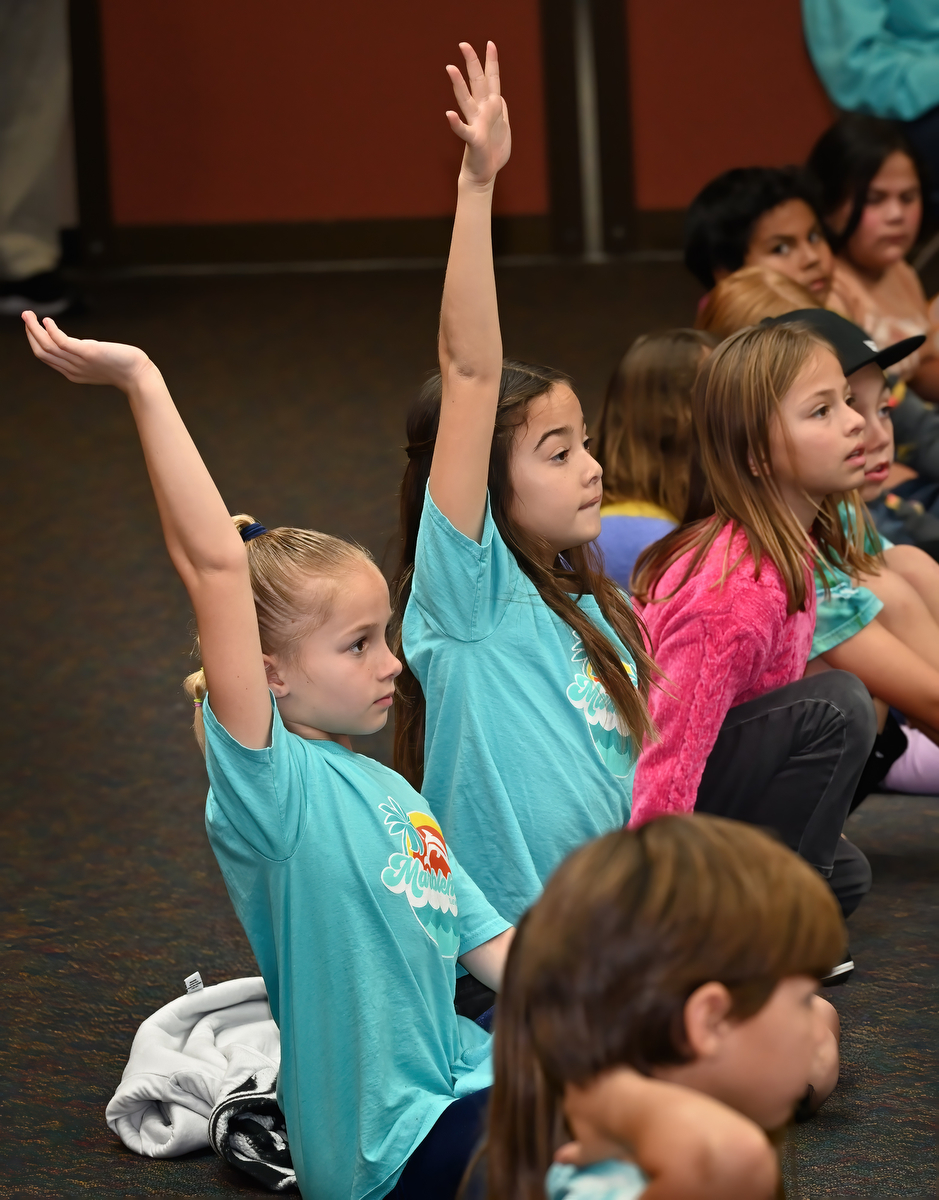
Photo by Steven Georges/CUSD Insider
Tahuka, who now lives on a reservation in Saskatchewan, Canada, comes to California during the school year to help his mother with performances. He is the first Californian to win the Blackfoot Confederation World Chicken Dance competition in Alberta, Canada. He credits his mother with helping him fully engage with his heritage.
“I sit with our elders and listen,” he says, of picking up the rapidly disappearing tales and lessons from his culture. The performances are his way of helping keep his culture alive.
At the conclusion of her performances, Nunez encourages the children to go home and share what they learned with their parents.
“I make them go home and learn five things that are special about their heritage,” she said.
After the performance, third grade teacher Kelly Heard said she was delighted to see Nunez return to the school.
“I’ve grown up watching her the last 21 years,” Heard said. “She’s touched so many lives. I’m so glad she’s back. She’s as magical now as she was then.”
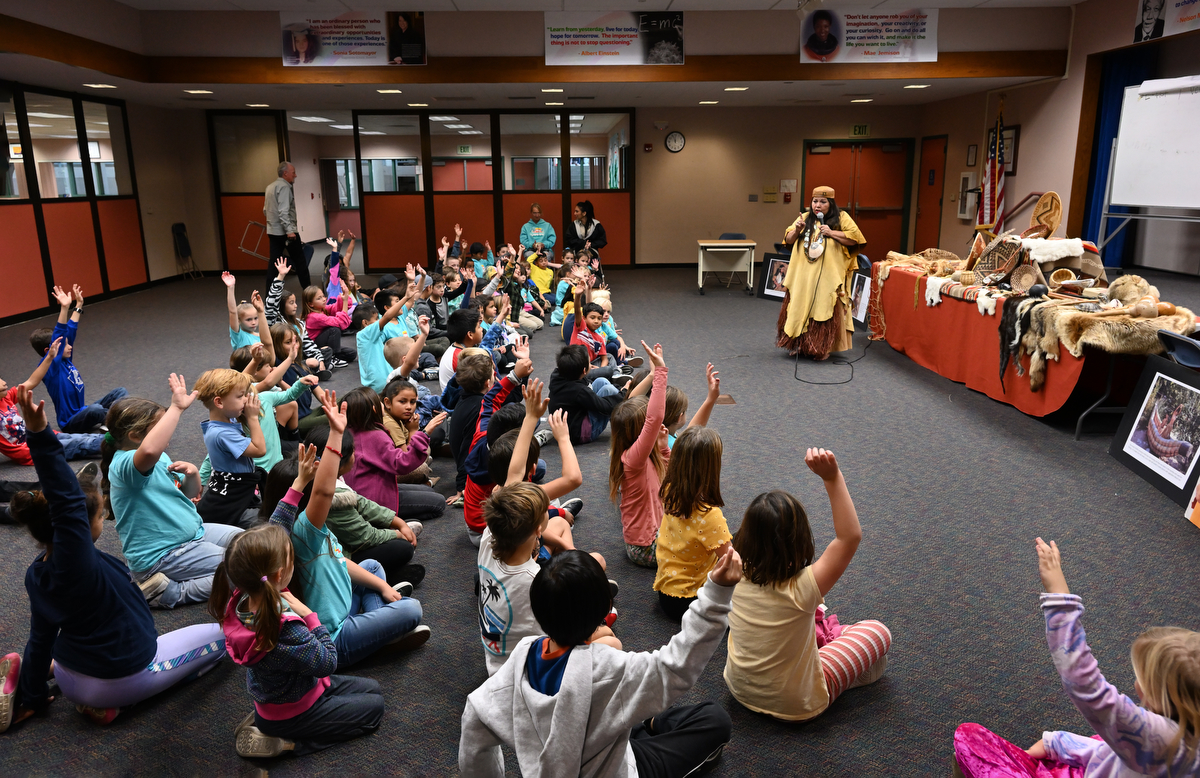
Photo by Steven Georges/CUSD Insider
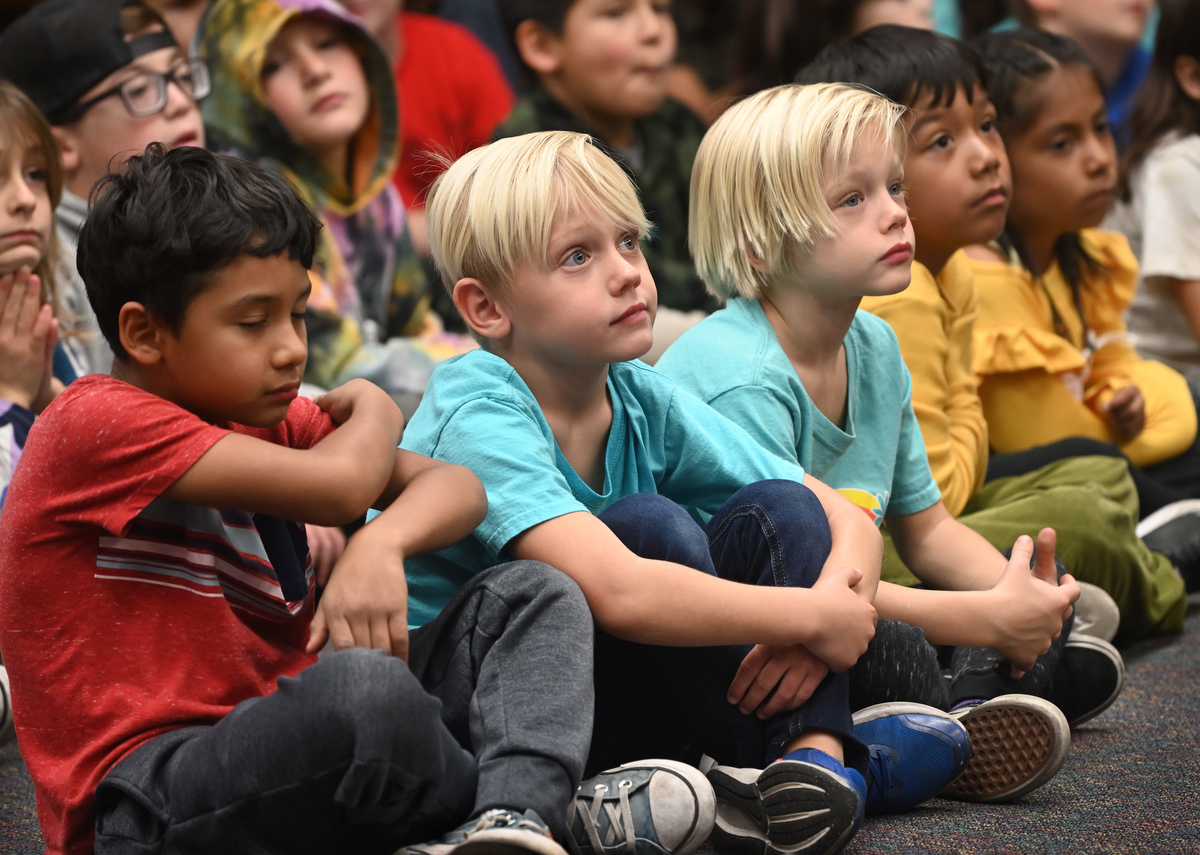
Photo by Steven Georges/CUSD Insider
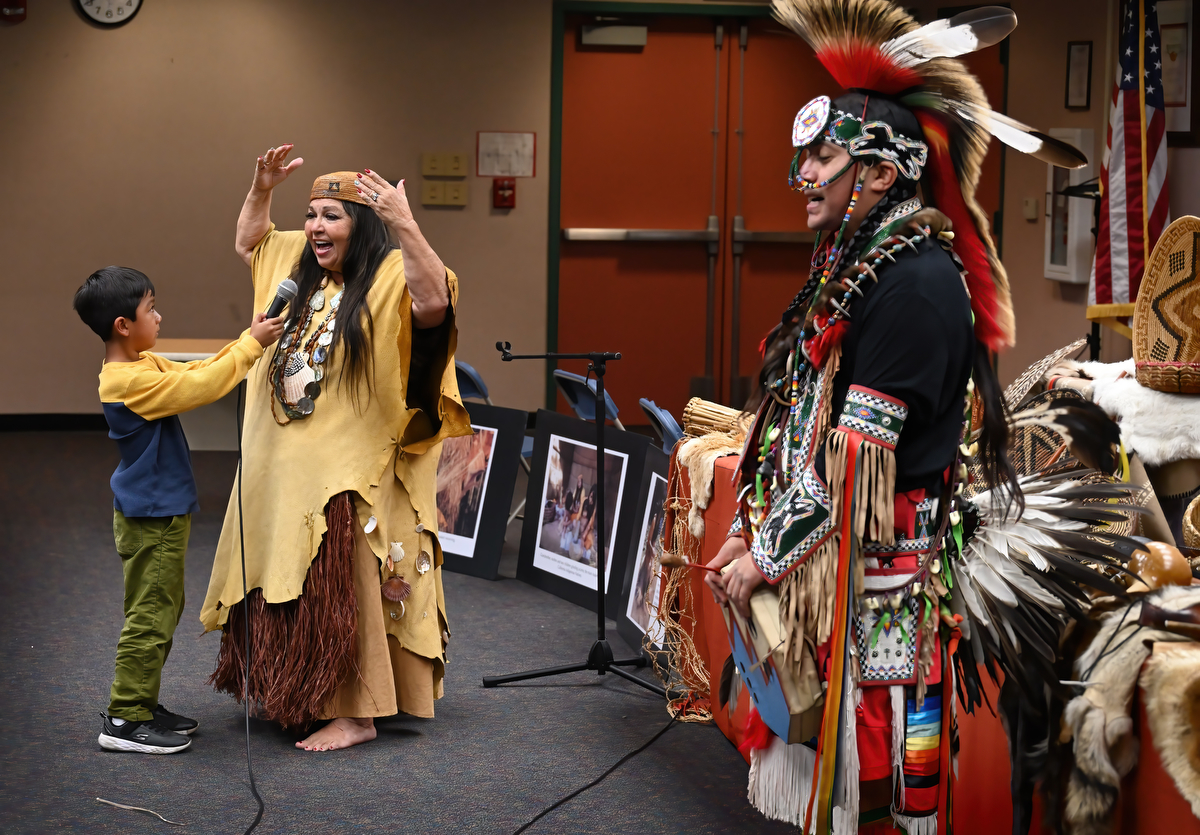
Photo by Steven Georges/CUSD Insider
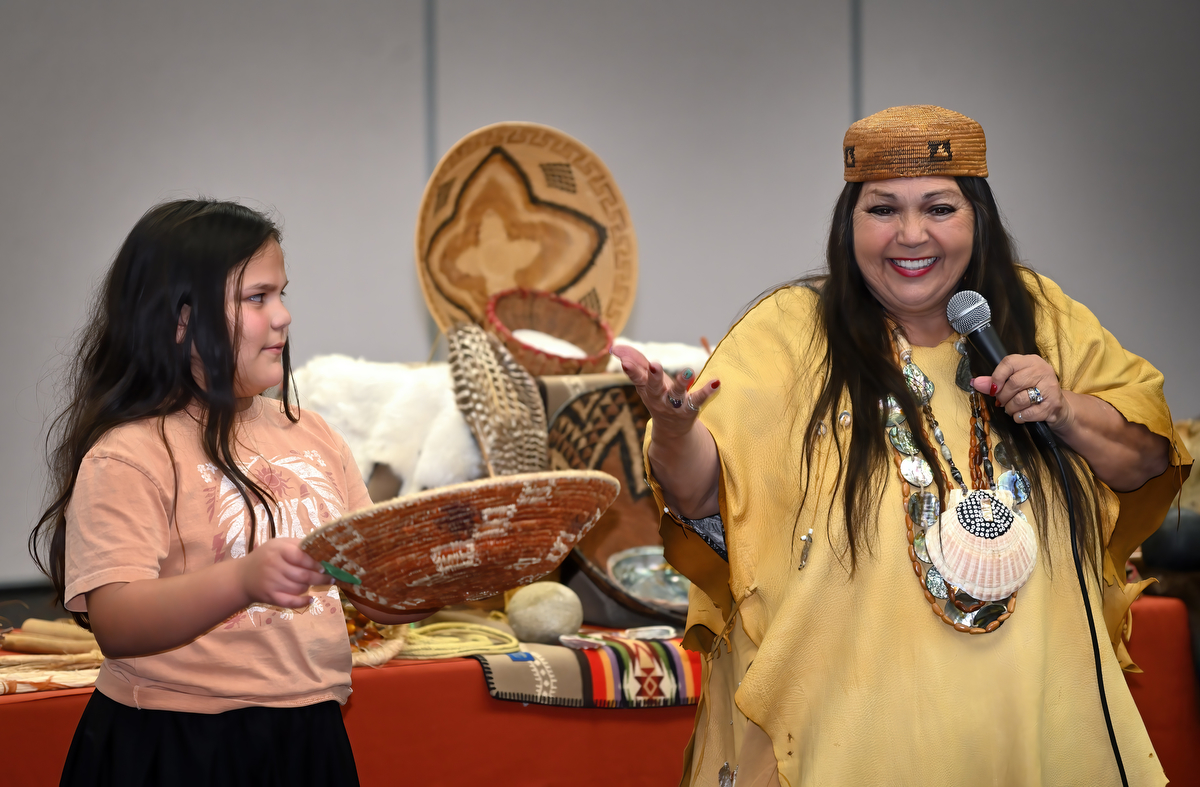
Photo by Steven Georges/CUSD Insider
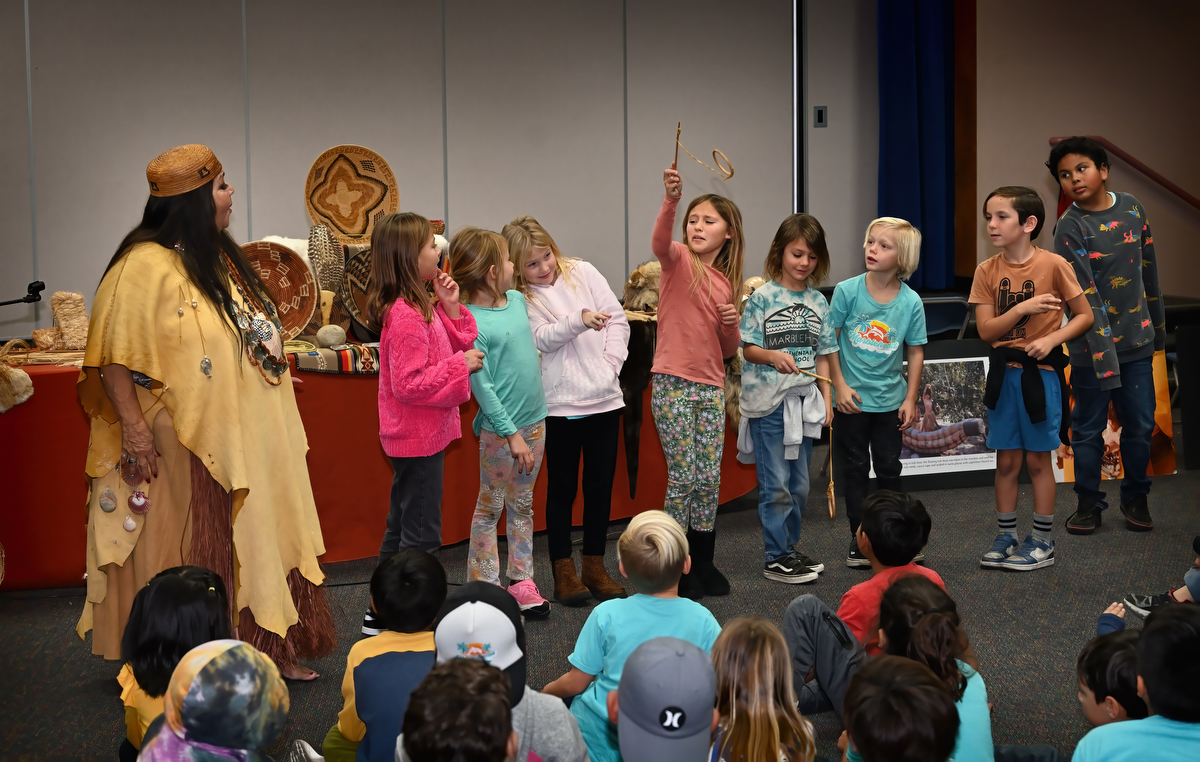
Photo by Steven Georges/CUSD Insider
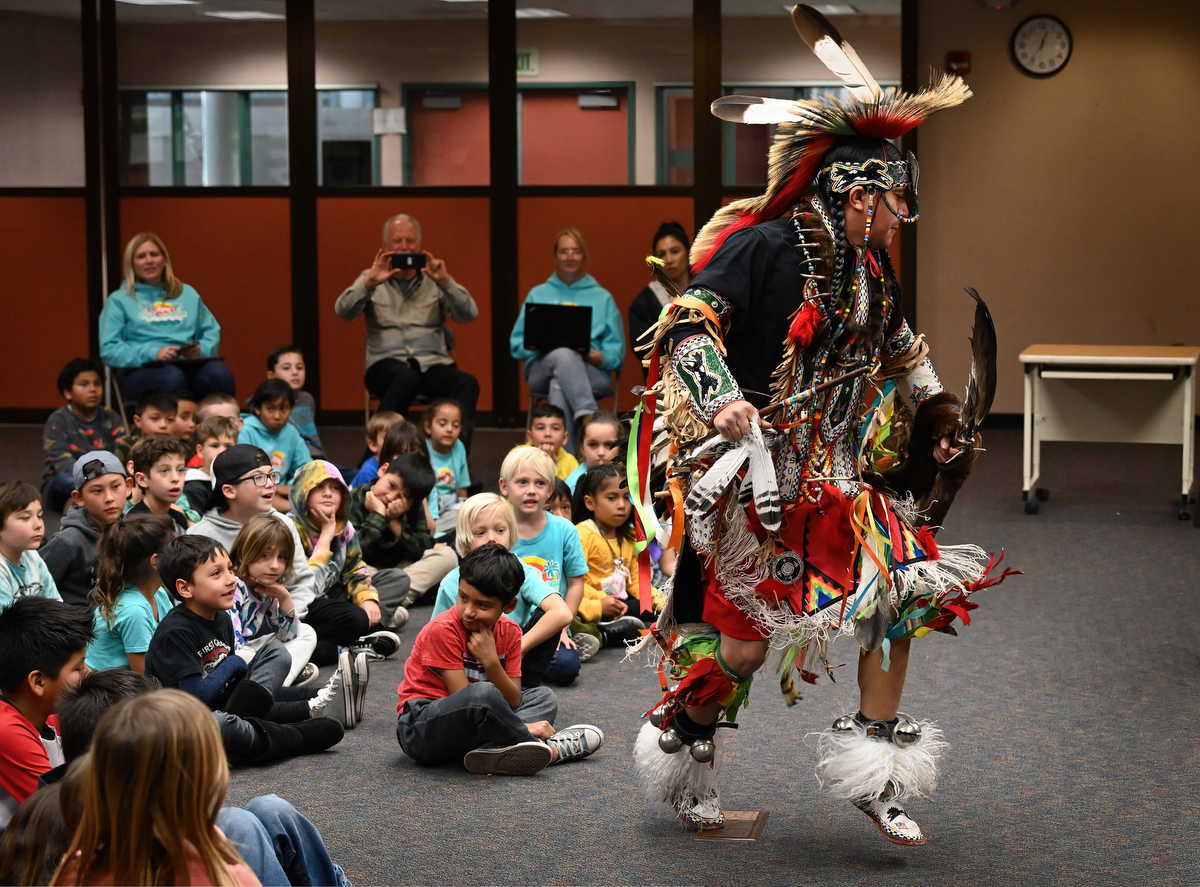
Photo by Steven Georges/CUSD Insider
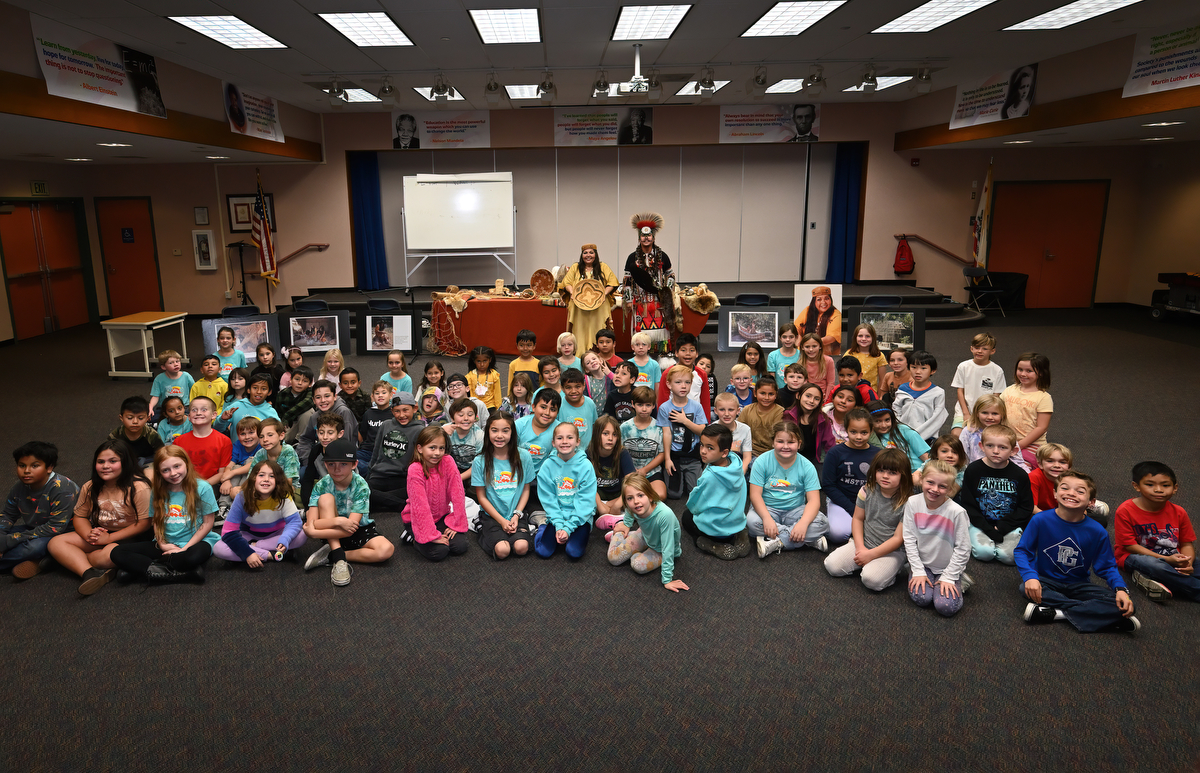
Photo by Steven Georges/CUSD Insider

